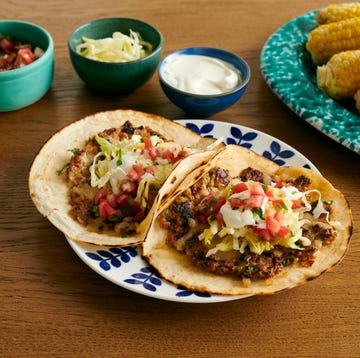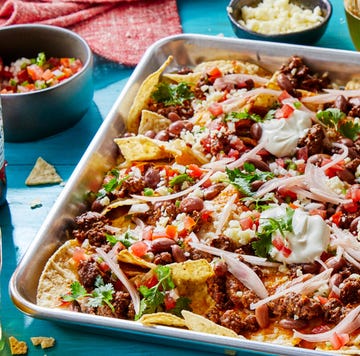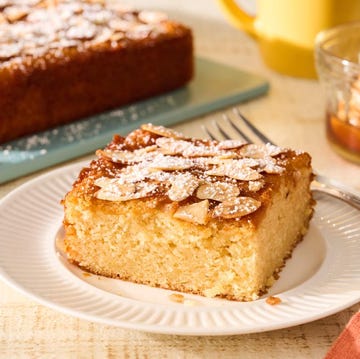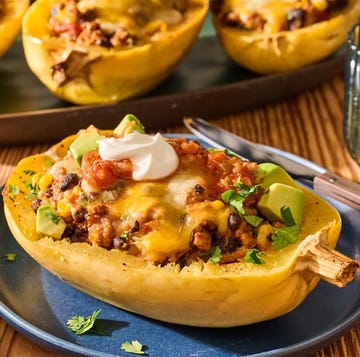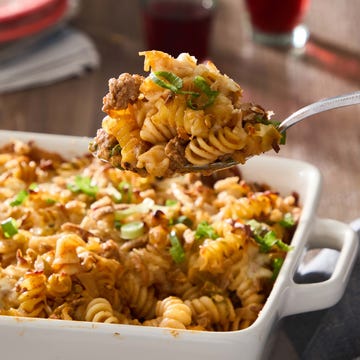What's the most fun fall activity? Carving pumpkins of course! While scooping out all the gloopy the seeds and carving your spookiest pumpkin design, you may begin to wonder, "Is pumpkin a fruit or vegetable?" Now that pumpkin season is finally here, you should know the truth. And it may surprise you!
What Are Pumpkins?
Pumpkins, squash, and gourds are all part of the Cucurbitaceae family. This botanical classification includes over 900 species, including other produce like watermelons, zucchini, and cucumbers. The genus Cucurbita (aka "squash") falls under this family, so technically your typical orange pumpkin would be considered a winter squash.
Is a Pumpkin a Fruit or Vegetable?
Surprise: Yes, pumpkins are fruit. People assume that pumpkins are vegetables because of their savory taste and how you cook them, but don't be fooled. Flavor is not the deciding factor. Technically, any plant that begins as a flower is defined as a fruit. If you've ever grown your own pumpkins at home, you know that it requires a lot of space and time, but you've also probably realized that pumpkins grow from bright yellow or orange blooms. And pumpkins aren't the only plant that follows that pattern.
Similarly, tomatoes are a fruit but did you know that cucumbers, squash, peppers, and avocados are vegetables that are technically fruit as well? Yep, each of these fruits also develops from a bloom. In fact, most any item with visible seeds on the inside is categorized as a fruit, which makes a pumpkin's gloopy seeds a dead giveaway.
Are Pumpkins Healthy?
Yes, indeed. Not only is pumpkin low in calories, but both the flesh and seeds are highly nutritious. That means you can feel good about the loaf of pumpkin bread you were planning to bake! Here's a few reasons why you should be eating this nutrient-dense fall fruit:
Pumpkin Is Packed With Vitamins and Minerals
Pumpkin is rich in vitamins A and C which are vital to immune health, vision, and heart health. Just one cup of pumpkin provides almost an entire day's worth of vitamin A! This fall fruit also contains magnesium and potassium which help regulate blood pressure and assist in muscle and nerve function, among other functions.
It's Rich in Antioxidants
Pumpkin contains powerful antioxidants including beta-carotene (which converts to vitamin A and is what makes pumpkins orange!), alpha-carotene, and beta-cryptoxanthin that can help eliminate cell-damaging free radicals in your body and help ward off some cancers.
The Flesh and Seeds Are Full of Fiber
Both the pumpkin flesh and seeds are wonderful sources of fiber. Fiber helps you feel full for longer and also helps regulate blood pressure and cholesterol levels.
Pumpkin Is Low in Calories
High in fiber and low in calories is a winning combination in the health world! Pumpkin puree has about 100 calories per cup. Pumpkin seeds are more caloric, but just a tablespoon or two can provide delicious crunch atop salads or soups.
It's a Good Source of Protein
The flesh of the pumpkin isn't especially protein-rich, but the seeds sure are. Just another reason to love cinnamon sugar pumpkin seeds! Protein is essential to a healthy body, and just half a cup of pumpkin seeds contains about 20 grams of protein.


